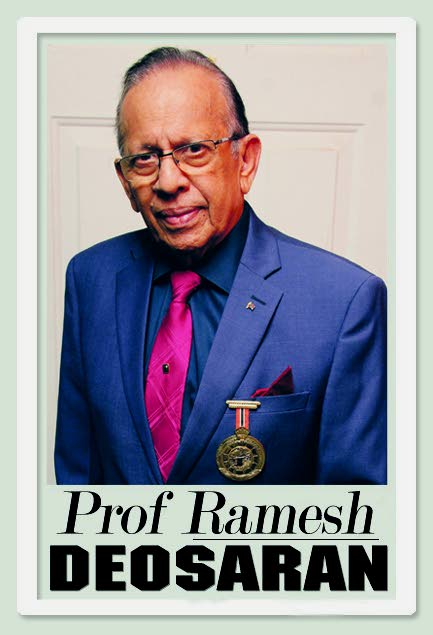Our nine-day wonders

Some of our citizens, thank heavens, do not give up. They keep on writing letters to the press, talking on radio or television about the country’s shortcomings but more importantly, offering ideas for improvement and accountability. The rest may agree or disagree.
Last Monday, Karan Mahabirsingh notably wrote: “History has proven that a crisis in TT is a nine-day wonder. Once the ‘drama’ is over, we are happy to move on. However, what that does is push the crisis into that pile of unresolved matters that has been building over the years.”
Not only is the “crisis” ignored but even the few citizens who persist in pointing out the need for correction and relief also get ignored. That is one reason I attend to Mr Mahabirsingh and a few others this morning. To help civilise and respect each other’s efforts and also remove us from what Archbishop Jason Gordon recently described as an “indisciplined, disrespectful and ungrateful society.” Maybe, like myself, Mahabirsingh and the Archbishop are just political romantics, dreaming of things that will never materialise here.
Last Wednesday’s turbulent episode over the nominations of five Police Service Commission members is an enlightening example. Will this be another nine-day wonder?
Several knowledgeable and experienced experts early pointed out the flaws and procedural dangers of the 2006 constitutional amendment which created a complicated system of appointing a Commissioner and Deputy Commissioner of Police. But “unresolved matters” kept piling up to the point where even the Prime Minister himself a few months ago rightly confessed that this 2006 amendment made things worse than before.
The convoluted system and its puzzling legal orders have put the President, the government, the Opposition and even the PSC in awkward, embarrassing positions. So much so that a judge had to enforce an expensive correction that still leaves untidy procedural gaps that continue to cause controversy inside and outside Parliament.
Opposition Leader Kamla Persad-Bissessar called it “a national crisis.” Mr Mahabirsingh added: “Many of our current problems have their genesis in the neglect of issues that have remained unresolved for decades only to manifest themselves in a different form later on.”
This is why, as careful analysis shows, the problems of crime and policing also remain so protracted, reappearing and reappearing.
We also face the age-old pothole crisis, drains and garbage disposal crisis. The political tragedy is that the politicians know but fail to tackle these ground-level problems. And if a citizen or NGO points out the problem and lack of government response, sparks would fly, even dragging the police into anti-people face-offs.
Fresh from Glasgow, Dr Rowley said that “this country has been deemed to be one of the biggest polluters per capita, so we have our work cut out for us.”
What about the minister? Some accountability? What about local government reform? These problems “remained festering” for years.
This brings us to “the 41 MPs in Parliament” noted last week by Mr Michael Scott from the Strategy Institute of TT. He wrote: “How did we, civic society, abdicate our responsibility to our country by allowing these 41 to act (at present 22 PNM members), to decide, to determine how to shape our destiny and invest our patrimony without being accountable to us?” Is it the Constitution, Mr Scott?
Citizen Dennise Demming wrote last week: “Every year through an oppressive web of taxes, we surrender more than a third of our income which we earn at significant cost to our physical and mental wellbeing for nearly non-existent government services. In some cases, we are paying for our own abuse as government offices have us going back and forth all over the city for simple transactions.”
Are such comments unfair, unrealistic? Is Steve Alvarez another political romantic when he writes: “We must rebuild now! We have no other choice.” Fewer and fewer citizens are willing to talk or serve. Is this “learned helplessness?”
Mahabirsingh ironically lamented: “Those who benefited the most will eventually have the greatest burden to bear.”
Facing a society of nine-day wonders, maybe these political romantics will have to console themselves with the prayer: God, grant me the serenity to accept the things I cannot change, courage to change the things I can, and the wisdom to know the difference.

Comments
"Our nine-day wonders"